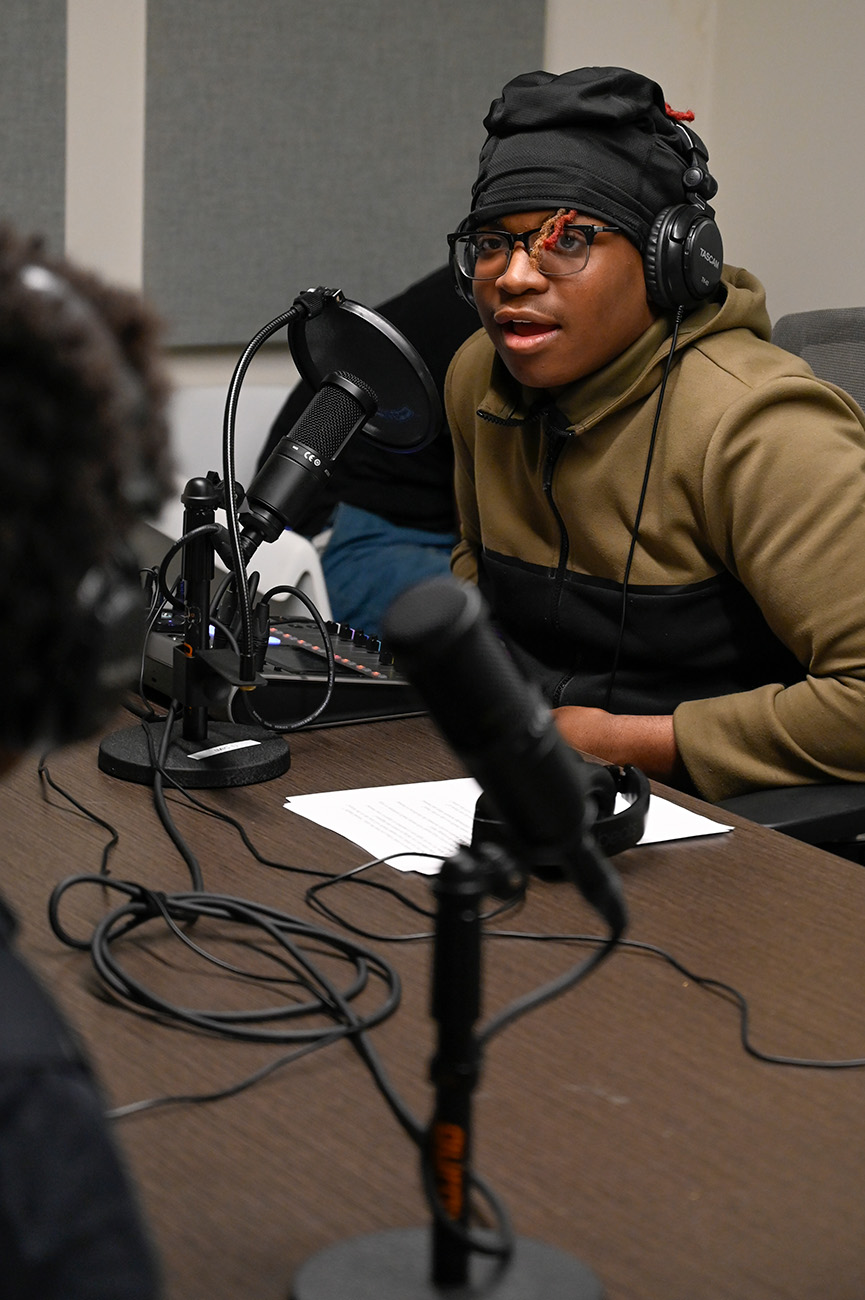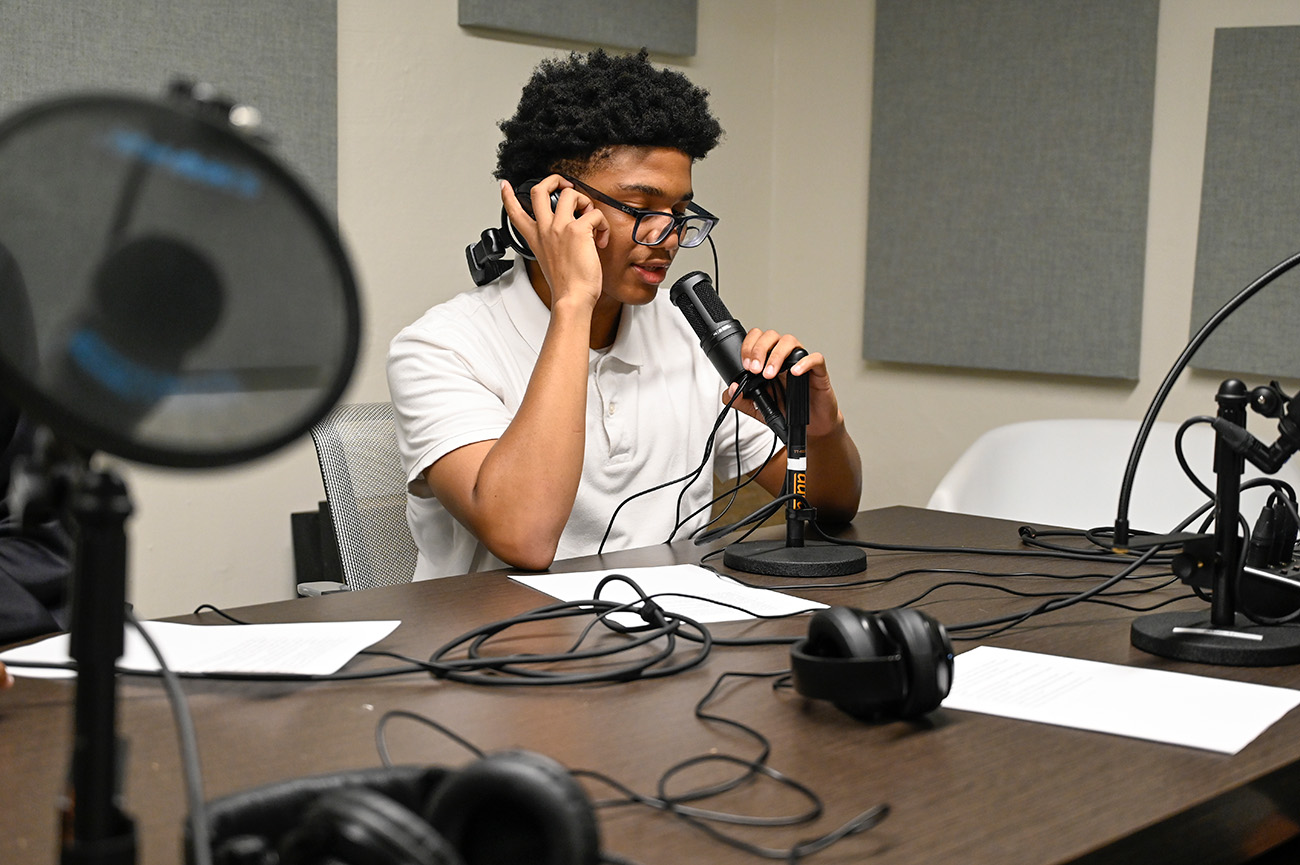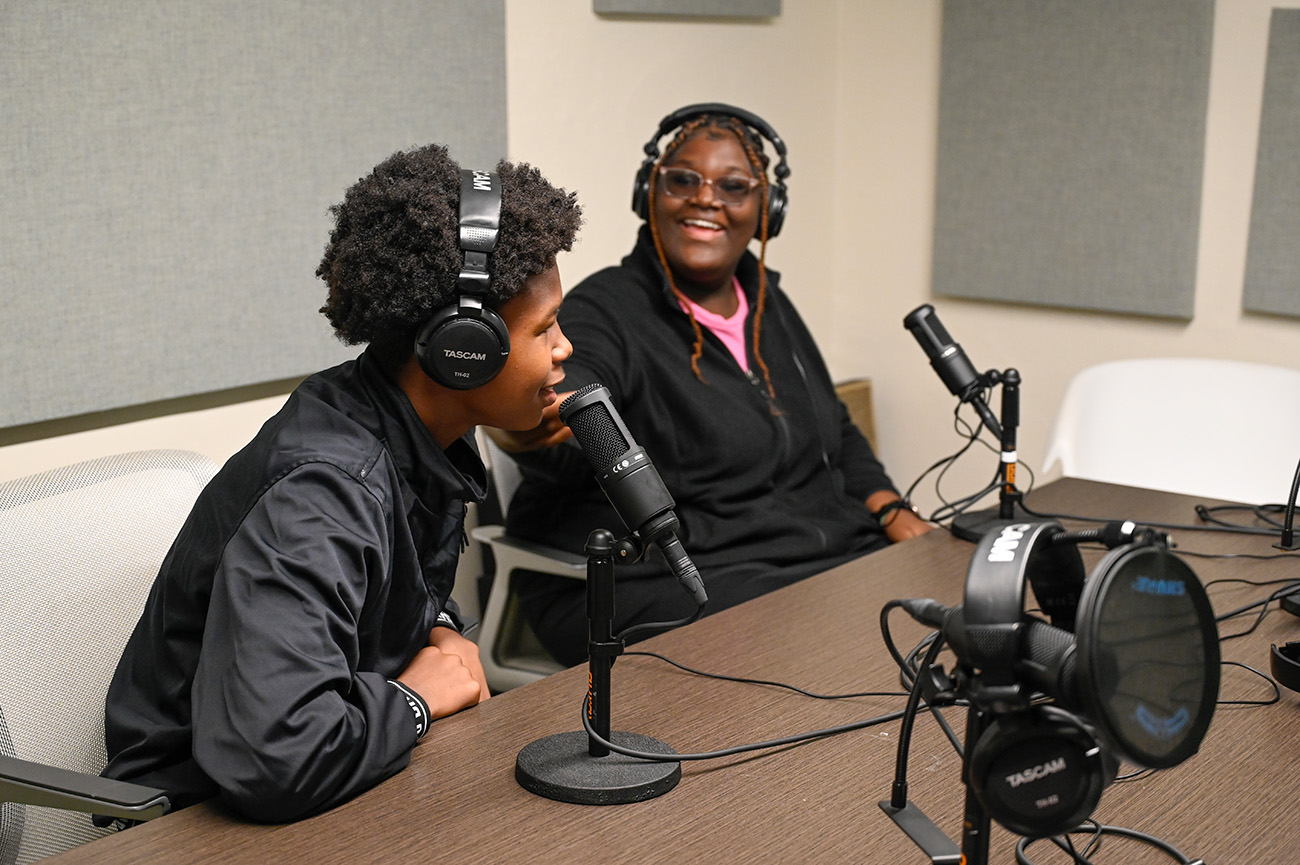Afterschool program at GCSU broadening high schoolers’ horizons
Produced by University Communications
H
igh schoolers got a taste of what it’s like to create a podcast this year as part of Georgia College & State University’s High Achievers Program.
Students from Baldwin High School and Georgia College Early College participated in a three-month endeavor to learn the basics of podcasting, resulting in their own podcast pseudo-episodes dealing with common problems for teenagers—like relationships and life issues surrounding mental health.

“We’re encouraging their public speaking skills, increasing their confidence levels, and fostering their leadership development and their teamwork,” said Kenneth W. Daniels, HAP coordinator. “The idea of the program is to strengthen leadership development while being involved in several activities. It’s about making a well-rounded individual that positively contributes to society—most of these opportunities the program participants wouldn’t find anywhere else.”
The afterschool youth development program is funded by the Georgia Department of Human Services and partners with Georgia College, the Baldwin County Board of Education, the city of Milledgeville and Baldwin County.
Students in the program explore all kinds of hands-on activities from outdoor obstacle courses to using microscopes in labs and other STEAM (Science, Technology, Engineering, Art and Math) activities, to engaging with professional guest speakers. Recently, the program introduced students to podcasting techniques and equipment.
“I’ve been teaching them podcasting: how to come up with topics, how to research topics and giving them the information they need to produce a podcast,” said Dr. Chad Whittle, assistant professor of communication at Georgia College. “It’s a great opportunity for the students in the program to learn how to share their thoughts and ideas, and it’s got to be interesting, engaging and informative.”
The Georgia College Department of Communication donated thousands of dollars of grant-funded equipment to the project, giving HAP students the basic experience needed to produce podcasts after their lessons.
“I’d like to be doing gaming podcasting,” said ninth-grade Baldwin student Arreon Amir Stephens. “I enjoy interviewing people and sharing viewpoints. I like podcasts, so I’m interested.”
Stephens and his peers examined mental health as their podcast topic and interviewed each other about what they’re going through.
“You will never know what people are going through,” Stephens said. “I could be having issues right now, and you’d never know, so I look at it as consideration. I care.”
Through their participation in podcasting for mental health education and afterschool exploration via the High Achievers Program, students are learning more about the opportunities they have awaiting them.
“This is a small family of kids who undoubtedly realized that they do have potential,” Daniels said. “They do have greatness within them and have the opportunity display and cultivate it. We just push and lead them forward to expand their horizons.”


Learn more about the Engage Pillar in our Imagine 2030 Strategic Plan
